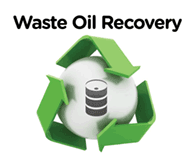New Zealand Importers of Bulbs - Update on Banned Agent
The use of Pirimiphos-methyl is from now on prohibited in Holland.
The agent has been officially banned for use on all bulb crops. While an exception has been made for agricultural crops such as grains and potatoes, for bulbs this agent is now strictly prohibited.
Commonly known as Actellic, Pirimiphos-methyl is used for disinfecting cooling rooms where bulbs are stored. Traditionally used as fog in storage rooms the chemical killed insects and mites.
According to sources in the Netherlands, bulb disinfecting by dipping, such as for Lilies and cut flower Iris is not affected and remains same.
The Atellic was noted on phytosanitary certificates for imports as Pirimiphos-methyl treatment. Other chemicals that are accepted by NZ biosecurity are: Diazinon , Fipronil, Thiocloprid / Imdidacloprid and Abamectin. However, all these have been banned for some time in the Netherlands
This change may lead to the requirement by the inspecting officer that all incoming containers of dry bulbs such as Tulip, Hyacinth, Gladiolus, Iris etc. will be fumigated after arrival. It is anticipated that Lilies should not change as the bulb disinfecting procedure has been unaffected by the above.
In order to control insects in the shipments, Dutch exporters generally use other chemicals at an earlier stage. The concern however is whether this process will work as well as the banned Pirimiphos –methyl. It will according to the exporter be a 'wait and see' process once containers arrive in New Zealand under the new regime.
"It becomes increasingly difficult to find suitable chemicals to treat bulb crops. "



 Classifieds
Classifieds



